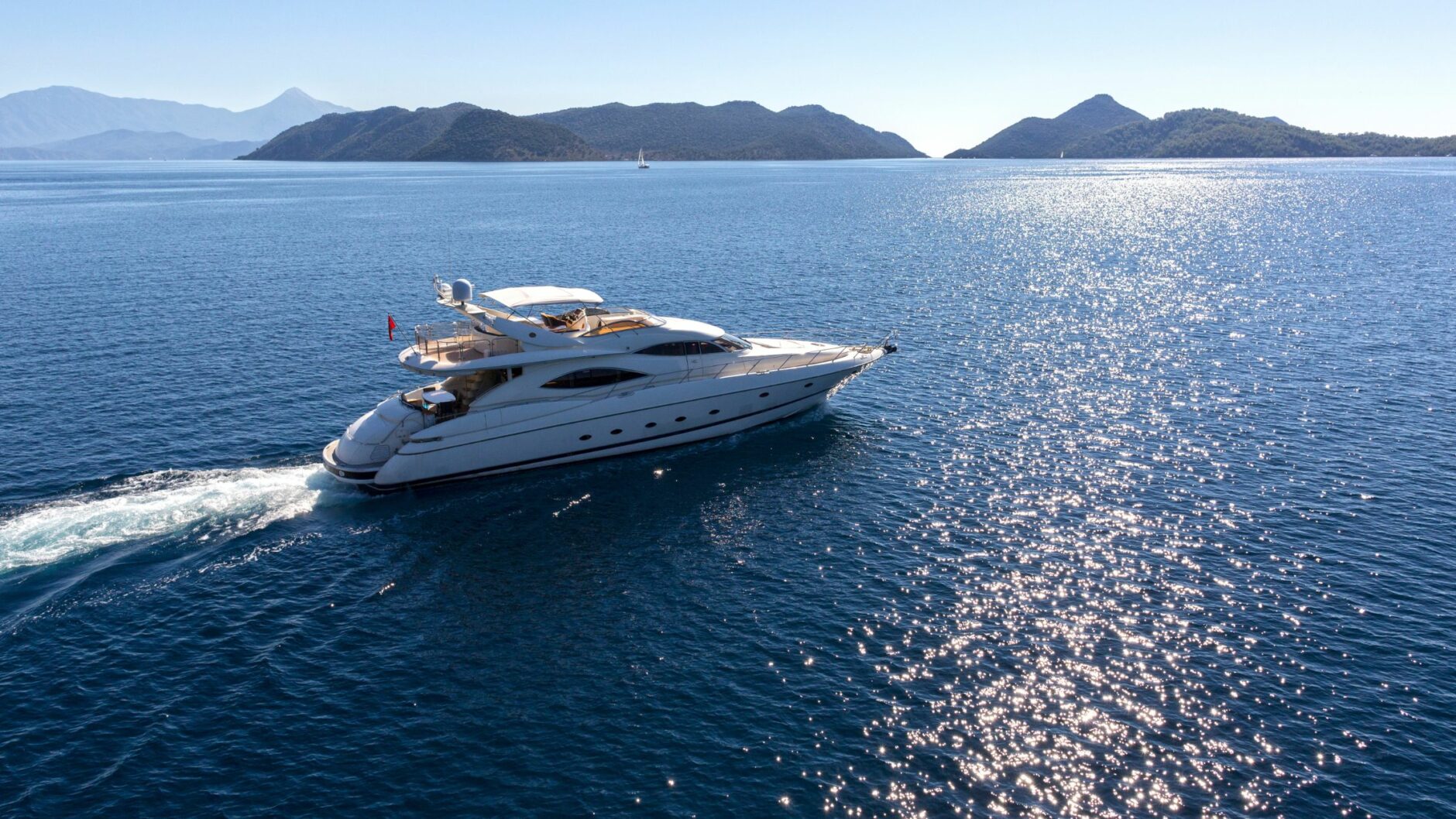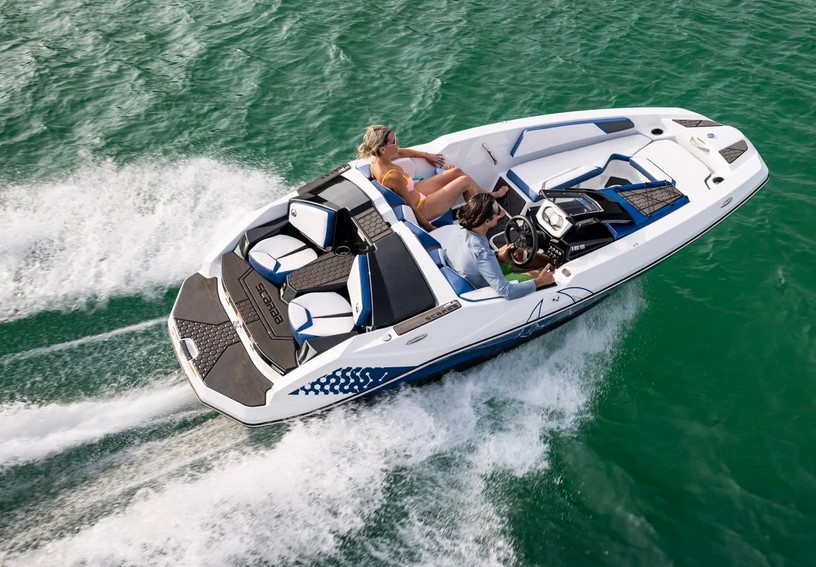Being on the water is a fantastic way to spend time in nature. But along with leisure and relaxation, there are also dangers that need to be considered, such as the potential for injury or financial loss. Below, we’ll take a look at some of these risks and talk about how to alleviate them.

Staying Alert to Nearby Weather Conditions and Water Hazards
If you’re mindful of the weather and potential dangers, you’ll be able to navigate safely and fully enjoy your voyage out to sea.
Double-check the local forecast before you embark on a voyage across the water. You can get an up-to-date forecast by installing a weather app on your mobile device. Be vigilant for extreme temperatures and inclement weather. Keep an eye on the sky for shifting cloud formations as you travel. Lightning, thunder, and heavy clouds (with or without rain) are all signs of potentially treacherous weather. Communicate with other vessels in the area to learn about any danger involving the weather.
You should equip your boat with radar and a global positioning system (GPS) receiver to keep track of the weather and underwater obstacles like rocks, shoals, and sandbars. Avoid potential hazards by maintaining a safe distance from other boats in the area using these methods, in conjunction with keeping a watchful eye on your surroundings. Wear a lifejacket at all times and have a first aid kit and flares handy in case of an accident. You’ll have a pleasant and safe boating experience if you keep an eye and ear to the weather and any potential risks in the sea.
Enforcement of Rules and Regulations While Boating
Every boater is responsible for knowing and abiding by the laws and ordinances that cover their specific vessel and activities. There are a bunch of reasons why it’s mandatory for boaters to abide by the rules and regulations of the bodies of water they traverse.
First, there are a plethora of maritime laws and regulations designed to ensure the safety of boaters. In order for everyone to have a relaxing day out, it’s important to keep noise levels down and stick to speed limits. Limits on sound levels and speed ensure that everyone on the water can communicate clearly and respond appropriately to safety signals.
Second, boat owners need to conserve the maritime ecosystem for future generations. Water pollution can be avoided by taking measures such as proper waste disposal and complying with fuel restrictions, while ocean habitats can be preserved through the protection of aquatic life.
Doing things “by the book” shows you care about the safety of other boaters, swimmers, and people on land, and you want to help keep the reputation of the boating community intact.
Observing Proper Maintenance and Care of the Vessel
It’s important for boat owners to frequently take a look at their vessels and undertake any necessary maintenance according to the manufacturer’s instructions. Boats need regular maintenance and attention to support their continuous use and safe operation.
Prevent accidents and injuries by maintaining your boat. Potential faults can be found before they cause major safety problems by inspecting the hull, fuel lines, electrical systems, and other components of the boat’s propulsion and steering mechanisms. Keeping up with routine maintenance and repairs can improve the boat’s operational reliability and make it ready for use whenever you need it. A vessel that’s been regularly maintained has a lesser chance of experiencing electrical or mechanical problems.
A boat’s peak performance can be sustained with regular maintenance. Consistent maintenance can also reduce repair costs and eliminate the need for expensive emergency repairs. Regular maintenance is a good opportunity to catch and fix little problems before they snowball into major, costly repair headaches. Optimal performance and fuel economy can be achieved by routine inspection and upkeep of the engine, propeller, and other parts.
There are a lot of perks of boat ownership. The boat’s condition and value can be preserved with regular care and maintenance. The resale value of a boat is typically higher if it’s been regularly maintained than if it hasn’t been.
Knowing How to Respond in an Emergency Situation
The life and safety of everyone on board depend on the crew’s ability to respond adequately in the event of an emergency at sea. Boats in many nations are required by law to be outfitted with safety equipment.
Having and knowing how to use the right safety and medical gear while at sea is essential. Having enough medical and protective supplies on hand is not only smart but protective of your passengers and crew; the ability to offer first aid in an emergency and stabilize a patient before you reach shore is especially important.
First aid kits and defibrillators, among other medical supplies, can save lives and lessen the extent of injuries in emergency situations. All passengers and crew members should be wearing life jackets and have access to life rafts and emergency locator beacons in case of an emergency. It’s crucial to keep in touch during a time of crisis. Having a VHF radio, a satellite phone, and/or other means of communication will allow you to request emergency help and get important updates on hazards and dangers.
In order to ensure that safety gear is in excellent working condition and can be used in case of an emergency, it should be inspected and maintained on a regular basis. Knowing that you have the necessary safety equipment and medical supplies on board will make boating a more pleasant and peaceful experience.
Storing Supplies Appropriately to Avoid Injury or Damage
It’s important to have good habits for safely storing equipment and lubricants when out on the water. Boat owners should make an effort to understand the right way to store and handle potentially dangerous items and materials on board their boats and adhere to best practices regarding these at all times. Some rules specify exactly how particular materials and tools need to be stored while they’re on board. If you don’t follow these rules, you can find yourself in trouble.
Tools and equipment can be protected from the elements and have their lives extended by keeping them in the right places. When equipment gets exposed to the weather, it deteriorates and becomes less effective and safe to use. Having everything in its place makes it simpler to find what you need when you need it, and this makes better use of the boat’s limited storage capacity. This has the potential to enhance the boat’s utility, making it more convenient for the crew to move around and perform their duties.
Knowing the Local Wildlife and Being Mindful of Potential Interactions
Because certain animals may be harmful in particular settings, knowing how to engage with local wildlife is key to avoiding accidents or damage at sea.
Whales and dolphins, for example, can be difficult to identify in choppy seas or in poor light. It’s possible that these creatures can be easily agitated and/or stressed out. The natural behavioral patterns and habitat of these animals can be protected if people know how to engage with them in a way that causes them the least amount of stress. Collisions with them can be dangerous for both the boat and the animal; therefore, it’s important to avoid them as much as possible.
Painful stings or bites can be inflicted by some aquatic species. Injuries can be avoided by knowing how to interact with these animals safely. Harm to endangered species or habitats can have legal repercussions. This includes ocean turtles and coral reefs. Saving these species and their habitats depends on humans knowing how to engage with them in a way that doesn’t hurt them or the environment. Responsible boaters will make an effort to familiarize themselves with the species in their area and behave accordingly.
Properly Insuring Your Boat and Being Mindful of Finances
Before setting out on the water, it’s a good idea to learn everything you can about boat insurance to make sure your property is safe. Boat owners should do their homework and choose a policy that fully addresses their concerns before embarking on a journey.
If you get involved in an accident with an uninsured or underinsured boater, your boat insurance will help pay for damages. If the other boater is unable to pay for the cost of repairs, your insurance might cover you financially. If you hurt someone or happen to damage their property while you’re out on the water, your boat insurance can help pay the costs. Having enough coverage in case of an accident or mechanical failure can ease a financial burden.
Your boat, accessories, and belongings may all be covered by boat insurance in the event of an accident. Without insurance, you would have to cover the bill for repairs or the replacement of your boat and belongings, which could be financially costly. In short, boat insurance can give you confidence on the water by shielding you from financial loss and legal responsibility.
Financing your boat (a luxury item) can be helpful in protecting your assets. When you finance a boat acquisition, you can hold onto your savings and cash on hand. The ability to have a strong financial cushion in case of unforeseen costs or crises is a powerful incentive to secure your wealth in this way. Financing a boat purchase allows you to stretch out the payment of your boat over a longer period of time, making the overall cost more bearable; you can preserve your assets by forgoing an imprudent outlay of money.
If you finance the purchase of a boat, you won’t have to sell any other assets, such as stocks or real estate, to cover your costs. This will enable you to maintain the diversity of your investment portfolio, which can help when it comes to safeguarding your money. The interest you pay on a boat loan can be tax deductible in certain circumstances. This strategy can help you save money and keep more of what you earn after taxes.
You can improve your credit rating and develop an excellent payment history by taking out a loan to pay for a boat and making all of your payments on schedule. By improving your credit rating and qualifying for lower interest rates in the future, you can help secure and build your wealth.




